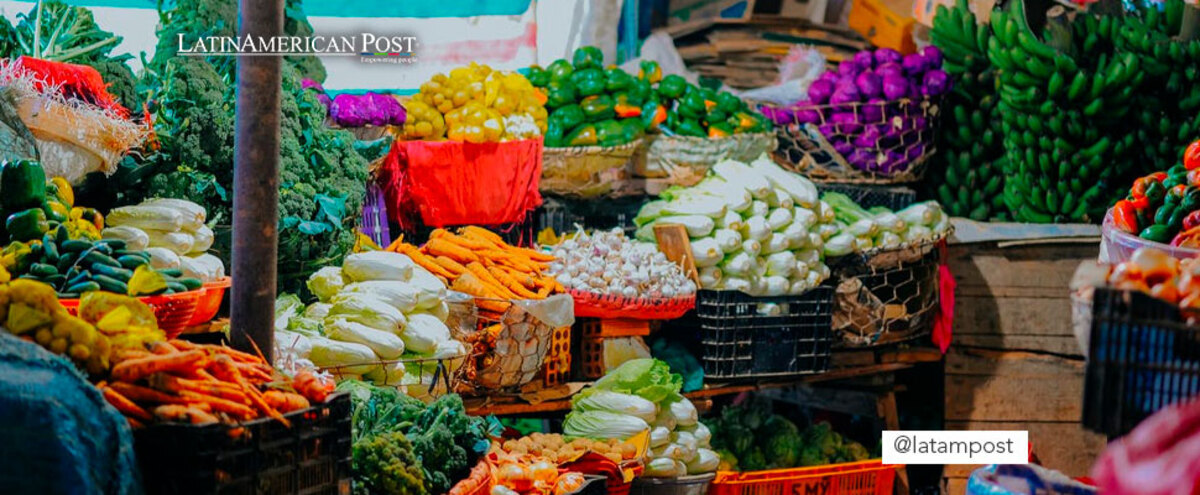Does Just Being a Vegetarian Help the Planet? Diet Changes to Help the Environment
With the Climate Crisis and Emergency, it is Common to see Information About Mitigation Measures and Possible Solutions that can be Done From Home. In Recent Years, a Debate Has Been Generated About the Close Relationship that Daily Food has with Negative Impacts at the Environmental Level..

Photo: Pexels
LatinAmerican Post | Daniel Alejandro Vergara García
Listen to this article
Leer en español: ¿Solo siendo vegetariano se ayuda al planeta? Cambios en la dieta para ayudar al medio ambiente
Could I be affecting the environment with what I eat every day? Will using a vegan diet help reduce the effects of climate change? Can there be an easier way by which I can reduce my consumption of meats and other environmentally harmful foods without completely changing my daily diet?
All these questions belong to a conversation that has been taking place on the medical, economic and environmental agendas of much of the world. The truth is that although it is certain that the excessive consumption of certain foods directly influences the phenomena of the climatic emergency, there are slight ones that can be carried out and do not imply complete modifications of daily diets.
It is no secret that extensive livestock farming is one of the biggest problems that must be faced if the effects of climate change are to be reduced. Therefore, apart from investing in farming equipment like tractors, plastic grain bins, plows, fertilizer spreaders, farmers should also focus on the impact they have on the environment. According to a National Geographic article: “Currently, beef is the leading cause of deforestation globally, responsible for 41% of rainforest destruction. By comparison, logging for wood and paper is only 13%.” This implies the exponential loss of biodiversity in terms of fauna and flora, which leads to different scenarios such as the extinction of species and the disappearance of vital ecosystems for the transformation of carbon dioxide into oxygen.
Data from this same investigation affirm that the food industry is responsible for emitting between 30 and 40% of greenhouse gases (GHG) in the world. According to the AQUAE Foundation, this type of gas, due to its chemical characteristics, after rising, remains in the atmosphere and absorbs the infrared energy emitted by the sun, this leads to an increase in the temperature of the earth and the oceans and climatic variations. extremes, rising tides and melting of the poles. Cattle emit Methane, a gas that accounts for about 14% of annual GHG emissions, and is 28 times more effective in conserving heat and radiation from the sun than CO2.
As for fish, according to the CNN report "We are what we eat", about a third of the world's fish population is overfished and about 60% is fished at maximum capacity, making the fishing industry somewhat untenable.
An article published by the Center for Sustainable Systems, at the University of Michigan, states that there are three possible scenarios for 2030 in terms of climate change and that each one depends on the measures that both governments and society take in terms of climate change. Feeding Habits. According to the researchers, in 2016, an average American consumed about 133 pounds of meat annually, which leads to their carbon footprint per day being 5.0 kg of carbon dioxide emitted per person. It is stated that by 2030 the average will tend to rise if no action is taken.
We suggest you read: Europe makes an agreement to unify cables for electronic devices
Some alternatives
“Halving the intake of all animal-based foods and replacing them with equivalent amounts of plant-based foods results in a 35% decrease in GHGs from baseline, at 3.3 kg CO2 per person per day. Similarly, further reducing beef consumption to just 10% of the baseline value and then replacing it with plant-based protein reduces diet-related emissions by 2.4kg CO2 per day, a decrease in 51% with respect to the reference value”.
It is necessary to clarify that the study states that taking measures such as a small reduction in meat consumption will greatly help to combat certain of the effects of climate change. After this information, one can return to one of the initial questions: Is there a middle ground with which I can reduce my consumption of meats and other foods that are harmful to the environment without completely modifying my daily diet? The answer is yes! While being a vegetarian is the best option for climate change, making a conscious reduction in meat consumption can also help.
In an interview conducted by CNN with Maggy Keet, founder of the web portal "Planetarian Life", she talks about how to carry out flexible strategies with food that can increase the consumption of plants and reduce that of meats without making major changes in the diet.
Keet exposes on his web portal that people will be able to find advice on the way to eat new things around the planet, some of these are:
- Small details, big changes: make substitutions in some foods of daily use such as sugar for honey.
- Avoid using the narrative discourse of the climate struggle as something related to the reduction or renunciation of something, in this case food, but rather think about adding possibilities for daily cooking, instead of removing options for personal diet or family
- Make gradual and not so drastic changes in the way you eat. Prepare basic recipes that can later be used to make other types of dishes. Lentil or walnut ground beef and tomato sauces are suggested in the article.
- Experimenting with food promotes creativity, the desire to investigate more about food and satisfies the palate.
Likewise, buying in bulk, avoiding foods packaged in plastic, buying from local producers and choosing products that are in season are key factors. These tips are just a few of a long list for adding variety to people's daily diets. It is a fact that the climate crisis is imminent, however with the help of some vegetables, grains, vegetables, frying pans, a pinch of salt and oil, you can help reduce the effects of climate change.




